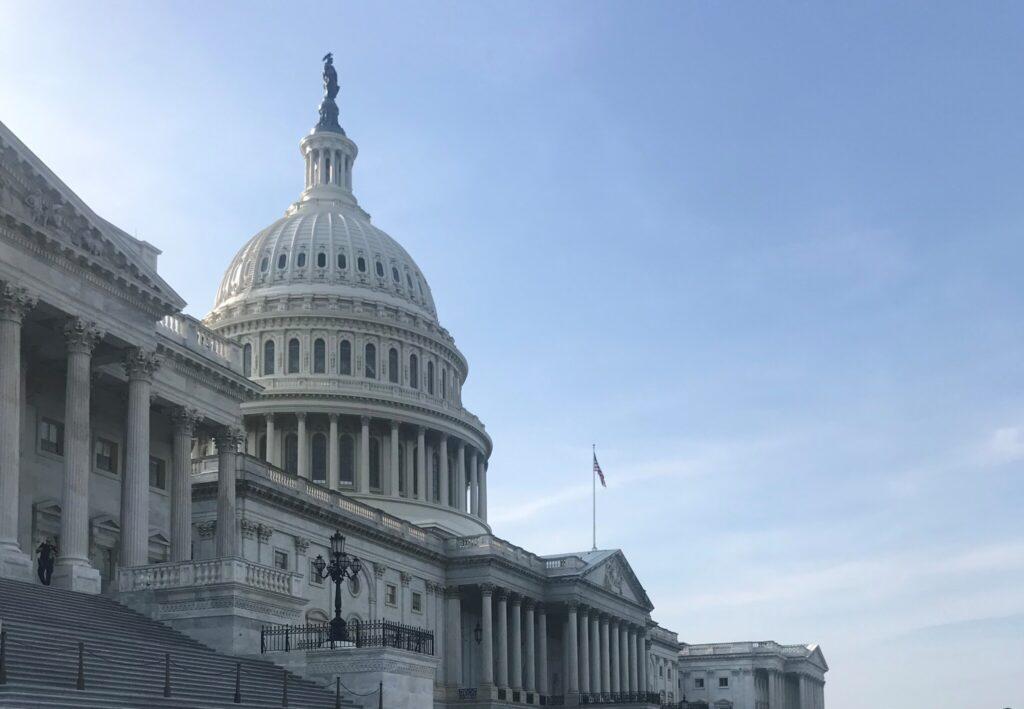Congress is struggling to reach a consensus on government funding legislation by Oct. 1 with a looming shutdown that would result in ramifications for everyday Americans and Washington, D.C. residents.
Kevin McCarthy (R-CA), the Speaker of the House, is feuding with a group of far-right Republicans to pass the 12 appropriation measures needed to avoid a shutdown, as these fringe members want to cut down the budget and have refused bipartisan compromises.
While many nonessential government services would shut down, other key agencies would remain open, though employees would not receive paychecks. When the shutdown ends, employees will receive back pay despite not working. Federally run sites in D.C., such as the National Zoo and Smithsonian museums, will close, as well as agencies like the court system and public defender’s office.
Congresswoman Eleanor Holmes Norton (D-DC), who is Washington, D.C.’s non-voting delegate to the House of Representatives, said that the District would be heavily affected because the federal government is the largest employer in the region.
“We’re always at greater peril than others, but for that reason, there is great security. I think this is the best-protected city,” Norton told The Hoya.
Norton added that the shutdown likely would not impact universities.
“As for universities, I think you are fortunate that more than 90% of the federal grants and loans grants for which students qualify were already on hand before the shutdown,” Norton said.

Norton has urged Congress to exempt the federally funded D.C. agencies from the shutdown. Norton succeeded in passing a similar provision during the 2013 and 2018 government shutdowns.
“I think we have a special understanding of this city and what it needs. D.C. is a bystander to the shutdown and federal problems, and we shouldn’t be caught up in shutdown fights,” Norton said.
The D.C. government will remain open and will take on some federal services as it did in the 2018 shutdown according to Kevin Donahue, the City Administrator.
“If there is a federal government shutdown, it is important for our residents to know that the District government will remain open and operating. As we did during the 2019 federal government shutdown, we are prepared to help the National Park Service ensure there is trash collection on the National Mall and that federal workers can receive any unemployment or other assistance they’re eligible for under District laws,” Donahue wrote to The Hoya.
Georgetown McCourt School Chair Donald Moynihan said that the shutdown’s inefficiencies will include the worsening quality of public services, abandoned projects, missed deadlines, fewer regulatory inspections and delayed implementations. Programs that support families and low-income individuals, such as free or reduced meals, will shut down when they run out of money shortly.
“Don’t forget, federal employees are everyday citizens,” Moynihan wrote to The Hoya. “Only about one in six federal employees live in the D.C. area. Most of them are our neighbors living across America. More than 40% of those people will not be allowed to work.”
Meghan McGorty (CAS ‘26) works as a congressional intern and said she has felt the impact of a potential shutdown along with colleagues in her office.
“Since I work for a freshman representative, most of our staffers don’t have previous experience in a Hill office, let alone during a government shutdown,” McGorty wrote to The Hoya.
“It’s affected everyone’s lives in even mundane ways — this week, I heard my supervisors talking about stocking up on trash bags since there’ll be no waste management in the building. There’s been a bit of a scramble to prepare, especially since we have to carry on with our regular tasks as normal,” McGorty added.
All nonessential workers are not allowed to come into the office and work, though they are paid when government work resumes, per a new law passed after the 2018 shutdown. Paid and unpaid interns, including McGorty, are not considered essential.
Assistant Professor of Government Mark Richardson said a shutdown could also harm the country’s credit rating.
“This struggle for control decreases incentives for bipartisan cooperation, particularly for the party that does not hold the presidency because legislative success is often framed as a ‘win’ for the president and the president’s party. This creates incentives for the out-party to obstruct the goals of the president’s party and focus on messaging to win the next election,” Richardson wrote to The Hoya.
Richardson said that breaking the political gridlock is difficult.
“As for how we break the gridlock, there is no easy answer. It requires a return to electoral competition similar to what existed before, bipartisanship to accomplish core governing tasks like raising the debt ceiling or passing budgets, or large enough majorities that votes of party hard-liners aren’t required to pass bills,” Moynihan wrote. “In short, the debt ceiling crises and repeated shutdowns call into question Congress’s ability to effectively craft fiscal policy and maintain government operations.”
Professor of Government Nadia Brown said that hardline members of the Republican Party are welcoming the shutdown to protest the increased spending of COVID-19 aid and President Biden’s agenda but are sidestepping other solutions, such as increasing taxes on businesses and the wealthy, revoking tax cuts and closing tax loopholes.
“This is a political fight rather than a government shutdown born of necessity. One fraction of the GOP is prepared to shut the government down if they do not get the political outcome that they desire,” Brown wrote to The Hoya.
“In layman’s terms, this is akin to an angry child threatening to take their ball and go home if their playmate does not adhere to the rules of the game that they want to play,” Brown added.




















